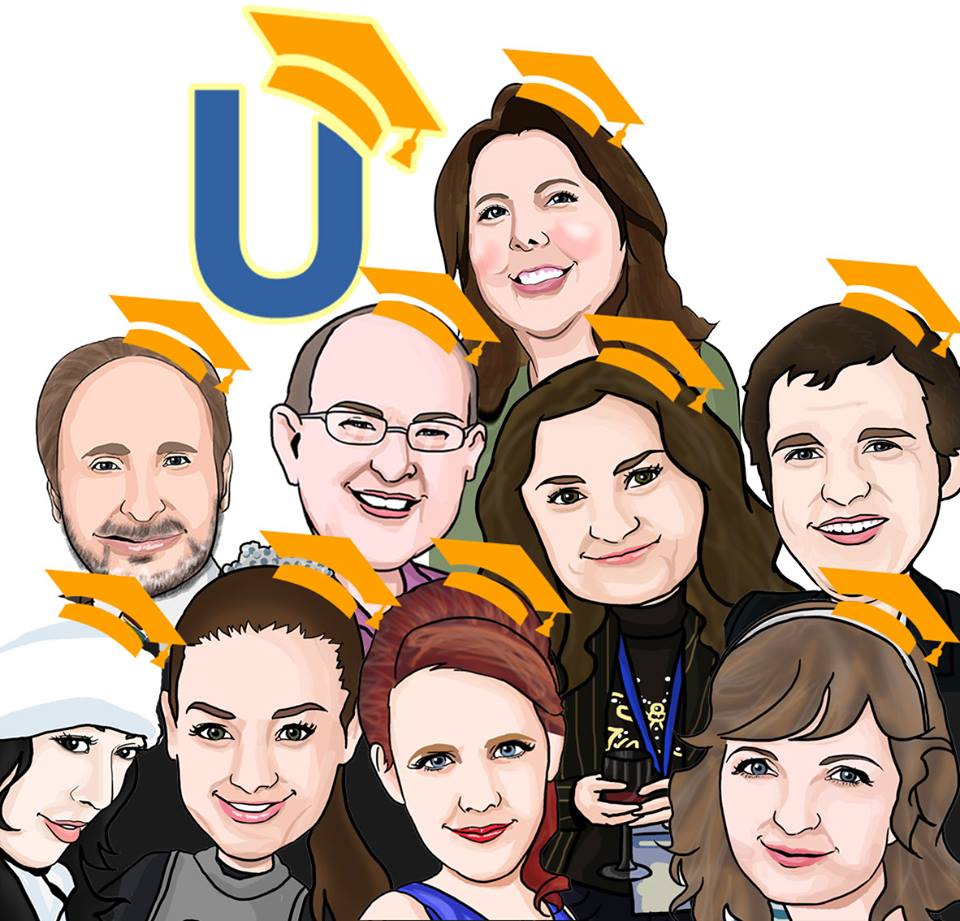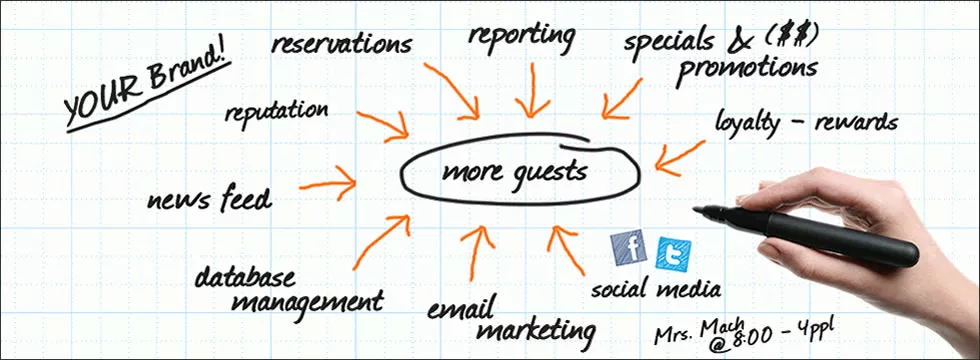Ann Smarty is probably the most famous public person in the world of content-marketing and search engines optimisation. She started as a SEO-blogger and in several years became Editor-in-Chief of influential Search Engine Journal and MyBlogGuest.com, one of the most popular platforms of guest blogging. Today Ann Smarty’s articles appear on MozBlog, Mashable, Social Media Examiner… We decided to find out Ann’s secrets of becoming a successful blogger and at the same time we jumped on the opportunity to learn about content markeing trends firsthand.

– Among other things I’m a brand-manager of Internet Marketing Ninjas, co-founder of Viral Content Bee and for a few weeks I’ve been a founder of MyBlogU. I’m also running a website TwChat.com as a hobby.
– Patience and ability to work without seeing particular results. In blogging you have to love the proccess, because it takes a lot of time to get significant results. Many things depend on what results you do expect. I did monetization 7 years ago and since then I haven’t seen any money. I didn’t put much effort in this matter though, because I got carried away with services. But I still wonder how people make money by putting ads on their sites and promoting affiliate programs.
– I usually write about something I’m doing or trying to do at the moment. Or likewise: I want to learn how to do something (for example, how to optimise ads on Facebook for minimum costs), and it’s much more interesting to do with an article or several articles in mind. Sometimes articles grow from Twitter discussions. And after all these years of writing articles I’ve just learned to find topics while doing something else.
– I’ve never followed any particular strategy for this website. I started it, because my boss-at-the-time wanted the whole SEO-world to find out about me. I didn’t even realise what to do with it. So I did everything I had time for. This site is still a hobby for me...

– Content-strategy is basics for any project. There is no web-project without content anf there is no good content without basic strategy. On the other hand, any project generates content while growing: trends are changing, clients and users are asking new questions. That’s why any content-strategy has to be very flexible and evolving.
– First of all, repackaging. It’s nearly impossible to promote the same content on different channels – there are too many of them now. That’s why content is produced in defferent formats: while creating video you can make a podcast. Content is seldomly produced in one formate only. Visuality. West loves pictures –http://netpeak.net/ru/blog/ ;that’s why comics and infographics are so popular. Right now practically any content is visualized: I can’t imagine SMM without customized pictures. I like recent branch of SMM that evolved from idea of maximum visualization - Cinemagraphs. It probably influenced Vine.  Mobility. Numerous companies promote mobile apps and magazines, because people mostly use their iPads and smartphones while «resting» in Web.
Mobility. Numerous companies promote mobile apps and magazines, because people mostly use their iPads and smartphones while «resting» in Web.
– Depends on blogger. I can tell about myself, but I prefer to do planning for a week, not a day. For example, promotion of a single article takes few days. Week is easier to organise compared to day, because you can shift plans and change days. I also can’t tell you percentages: my tasks are extremely separated. I do some of them at the same time, others get prostponed for better times. It’s impossible to calculate percentages.
- I spend 2 hours a week to create content for my website (usually it’s one article per week).
- I spend 4 hours a week to do guest columns (I support 6 columns, so I need 6 articles in famous blogs in my niche a month to be in the public eye).
- It takes 6 hours a week to promote new content and support numerous business sites with all these publications + additional promotion in Twitter and Google+ accounts. In a nutshell, I post everywhere I can + where is appropriate in terms of topics.
- I spend 2 hours a week to create alternative formates (I like SlideShare and Youtube, but you have to make mini-presentations and videos using various tools and visual content. Animoto is a great tool for videos, it spares a lot of time, but you can’t use it every week – people get tired of it).
- I always spend 2 hours a week for various interviews and invitations, Twitter chats, Google Hangouts - everywhere I’m invited to. I get one or two invitation a week or two weeks. If you don’t get invitations, you can always impose on somebody.
– I’m not aware of such talks. In USA no company operates without this department. At least one person should kick other’s asses and make them participate in company’s marketing (I’m a Brand Manager in Internet Marketing Ninjas, so it’s about me: if you come up with idea, you’ll have to implement it :))
– It depends on your niche, of course. I didn’t have the pleasure: either because I’m that old already, or because SEO doesn’t have an audience there.
– Though I love tools, there are not so many services I use every day to optimize my work process. Here are some of them:
- Trello – to remember everything.
- Tweetdeck is really effective for Twitter – it helps to participate in Twitter-discussions without getting distracted from work + you can follow brand mentions and hashtags.
- Mailchimp is an easy and free email-marketing service. You can easily tune your answering machines with it.
- Thunderbird. I use it to organize e-mails. It’s also a great to-do-list: e-mails are saved in a folder until I’m done with all the work.
– Actually no. We tried Clicky, Woopra and CrazyEgg (it was a long time ago). But we got used to Google Analytics, it’s hard to switch on something else after all these years.
– «How to overcome Google penalty?». All jokes aside, every other person on conferences is sure that they’re being fined by Google. Nobody thinks that their site is clear. In USA it’s like a mass hysteria.
– I haven’t noticed any crisis… Only Google pushes really hard: many companies are glad to remain in positions they have now. Nobody wants to go up or down. After major crashes folks are afraid to deal with any services.
– To be honest, I’m hard to be surprised these days. I’ve seen my fair share of surpises already… I would probably be surprised (but I don’t expect to in the nearest future):
- If they announced about AuthorRank (Agent Rank).
- If they announced that pluses have influence on ranking.
- If they announced that they cancel manual penalties and leave only algorithmic penalties.
- If they announced that links don’t take part in algorithm any more.
- I can’t make up the fifth :)
– I don’t have much time to read… From what I’ve read/thumbed through "The Art of SEO" is widely known (everyone should read it). "You Should Test That" is not bad either.
Translated by Anastasia Zdorikova. You can also read about SEO-trends and mistakes of American clients in interview with Rand Fishkin.
Related Articles
What Is a URL Slug, and How Do You Make It SEO-Friendly?
Let's figure out how to make URL slugs understandable for users and search engines and how to implement simple changes that will improve page visibility
Five Steps to Building a Keyword List and Clustering Keywords
In this article, I'll show you how to identify and group keywords in a way that will effectively attract your target audience
Amazon Dynamic Bidding: The Strategy and Psychology Behind Top Brands
Dynamic bidding on Amazon isn’t just another checkbox in your campaign settings; it’s the difference between throwing money at the Amazon advertising wall and orchestrating a symphony of strategic bid adjustments that separate the pros from the pretenders




